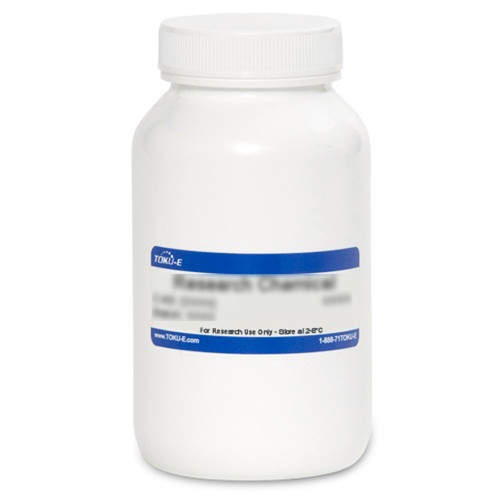Mebendazole is a broad-spectrum anthelmintic used as a treatment for roundworms. More recently it has been investigated as an anti-cancer agent, showing promise in vitro and in mouse models.
Mebendazole is soluble in formic acid and practically insoluble in water, ethanol, and ether.
Mebendazole is soluble in formic acid and practically insoluble in water, ethanol, and ether.
| Mechanism of Action | Like other anitparasitic benzimidazoles, mebendazole inhibits tubulin polymerization. The lack of transportation in the cell causes a build-up of waste and a depletion of energy. |
| Impurity Profile | Total Impurities: Not more than 1.0% Impurity A: Not more than 0.25% Impurity B: Not more than 0.25% Impurity C: Not more than 0.25% Impurity D: Not more than 0.25% Impurity E: Not more than 0.25% Impurity F: Not more than 0.25% Impurity G: Not more than 0.50% |
| Molecular Formula | C16H13N3O3 |
| Impurity Profile | Total Impurities: Not more than 1.0% Impurity A: Not more than 0.25% Impurity B: Not more than 0.25% Impurity C: Not more than 0.25% Impurity D: Not more than 0.25% Impurity E: Not more than 0.25% Impurity F: Not more than 0.25% Impurity G: Not more than 0.50% |
| References | Pantziarka, P., Bouche, G., Meheus, L., Sukhatme, V., & Sukhatme, V. P. (2014). Repurposing Drugs in Oncology (ReDO)—mebendazole as an anti-cancer agent. Ecancermedicalscience, 8, 443. http://doi.org/10.3332/ecancer.2014.443 Vercruysse, Jozef, DVM, and Edwin Claerebout, DVM. "Mechanisms of Action of Anthelmintics." The Merck Veterinary Manual. Merck & Co., Inc., 2014. Web. |



